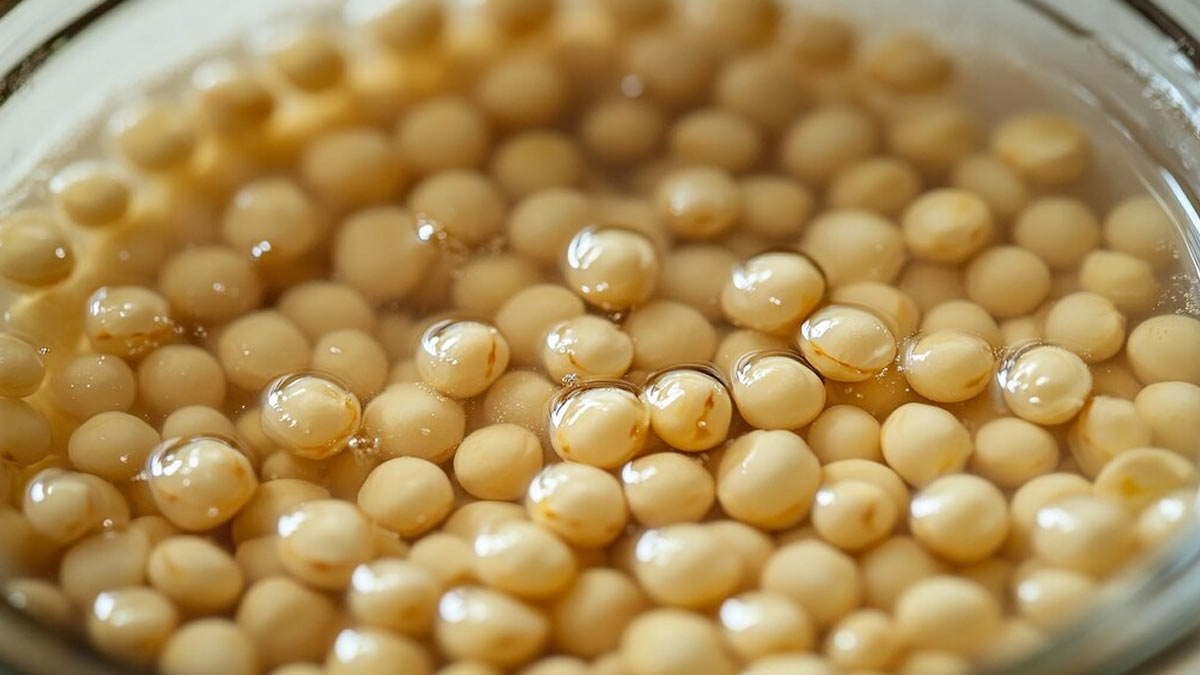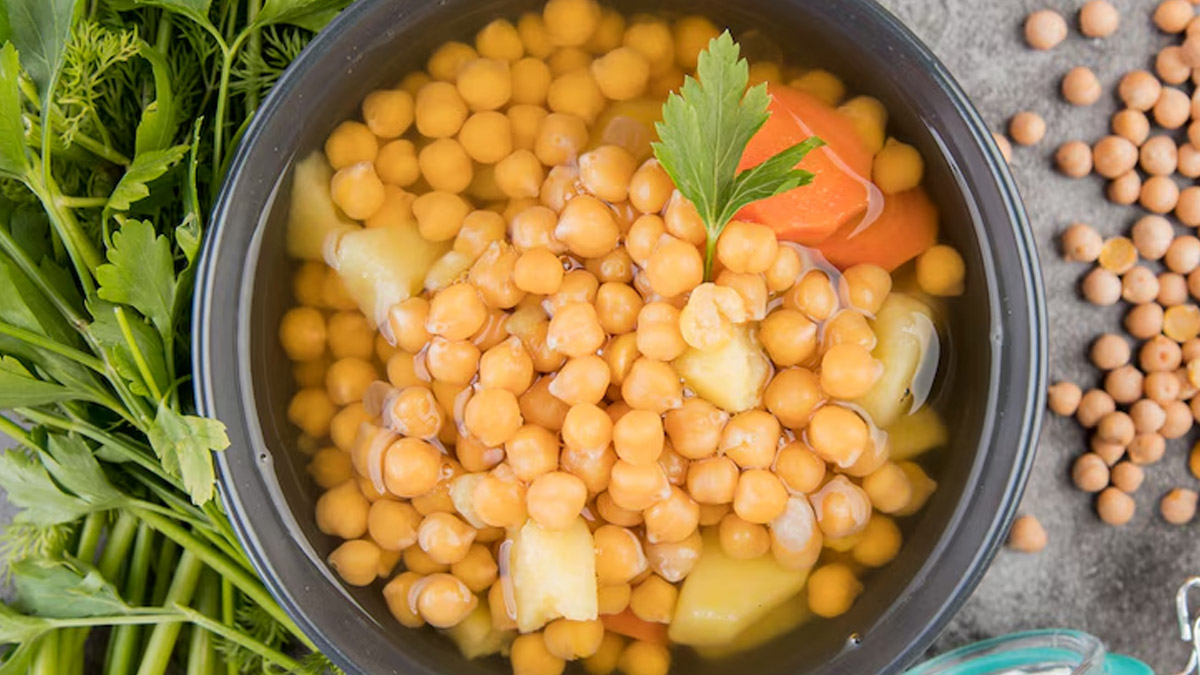
It is universal knowledge that beans should be soaked for at least 7-8 hours or overnight before being cooked. This is because doing so helps make beans more tender and shortens cooking time. But these are not the only advantages of soaking beans before cooking. Interestingly, soaking beans can also have various health benefits, some of which are listed below:
Table of Content:-
Improved Digestive Health

Soaking beans before cooking and consuming them has its own benefits for your stomach. It is said to improve digestive health by making them easier to digest and reducing gas and bloating. According to WebMD, beans contain oligosaccharides, which are carbohydrate chains that are made up of 2–10 sugar units. These are hard to digest and can cause gas. Soaking beans overnight can remove 75–90% of oligosaccharides, thereby making them easier to digest and reducing symptoms.
Also Read: From Protein Alternative To Liver Health, Here Are Some Health Benefits Of Beans
Beans Are Protein Rich; Soaking Them Enhances Nutrient Absorption
In general, beans are a rich protein source, especially for vegetarians. According to the US Department of Agriculture (USDA), one cup of beans contains 15.3 g of protein. Additionally, they are also lower in calories and saturated fat than many other protein sources like meat and full fat. While soaking beans does not increase their protein content, it does enhance the body’s ability to absorb the nutrients they contain, including protein. Beans naturally have compounds called antinutrients (like phytic acid and lectins) that can interfere with the absorption of minerals and proteins. Soaking the beans helps reduce these antinutrients.
Additionally, soaking beans can reduce tannins and polyphenols, compounds that can interfere with nutrient absorption and contribute to digestive discomfort.
When beans are soaked, the water activates enzymes that help break down and remove these polyphenols from the seed coat. Tannins and polyphenols can inhibit the absorption of certain minerals like iron and zinc. By soaking the beans, you can reduce the amount of polyphenols and improve the overall nutritional value of the beans, making it easier for your body to absorb essential vitamins and minerals.
Reduced Toxins![]()
Some types of beans contain toxins called lectins, which can cause severe reactions like nausea, vomiting, stomach upset, and diarrhoea, as per Harvard Health Publishing. This is a protein that binds to carbohydrates that are prevalent in raw or undercooked beans. By soaking beans, you can reduce the amount of toxins like lectin in them. You can also boil beans vigorously in fresh water for at least 10 minutes.
Also Read: Expert Shares 7 Health Benefits of Adding Black Beans to Your Diet
Steps To Soak Beans![]()
To soak beans, you can use either the overnight or hot soak method. Let's take a look at the preparation techniques:
Overnight soak
- Rinse the beans in a fine-mesh sieve to remove any damaged beans or stones.
- Put the beans in a large bowl and cover with water by 2 inches; you can add a pinch of salt.
- Cover the bowl with a clean kitchen towel.
- Soak in the fridge for at least 4 hours or up to 24 hours.
Hot soak
- Add three cups of water for every one cup of raw beans.
- Bring to a boil and boil for 2-3 minutes.
- Remove from heat, cover, and soak for up to 4 hours.
- Soaking beans helps them cook faster and more evenly and can make them easier to digest. You can cook beans on the stovetop or in a multi-cooker/pressure cooker.
Conclusion
Soaking beans before cooking is a mandatory step not only to make cooking easier but also to reap various health benefits. This process helps improve the digestibility of the beans and also enhances nutrient absorption. Additionally, it removes all the toxins and compounds that interfere with nutrient absorption. Beans are a great source of protein, especially for those who do not consume meat and therefore should be made part of a balanced vegetarian diet. However, if you experience any digestive problems after eating beans, consult your doctor.
Also watch this video
How we keep this article up to date:
We work with experts and keep a close eye on the latest in health and wellness. Whenever there is a new research or helpful information, we update our articles with accurate and useful advice.
Current Version

